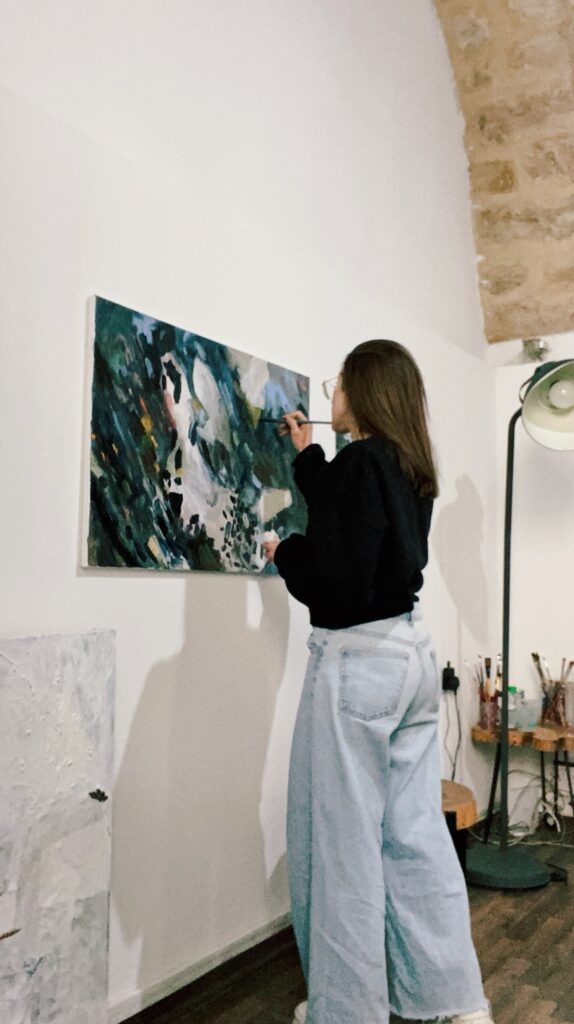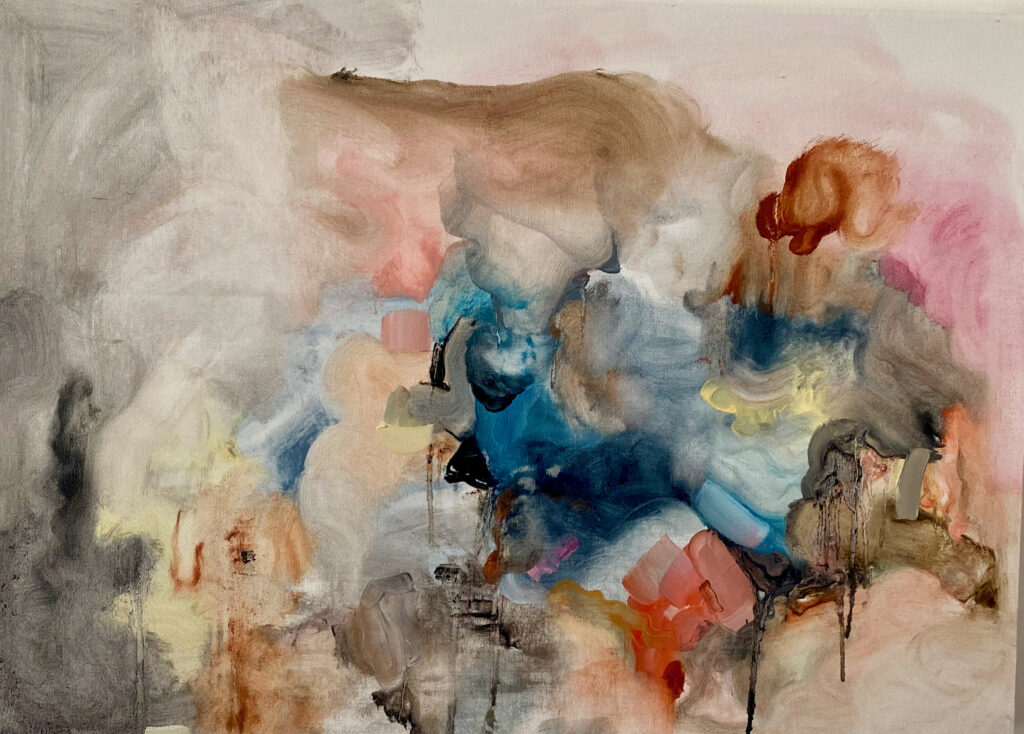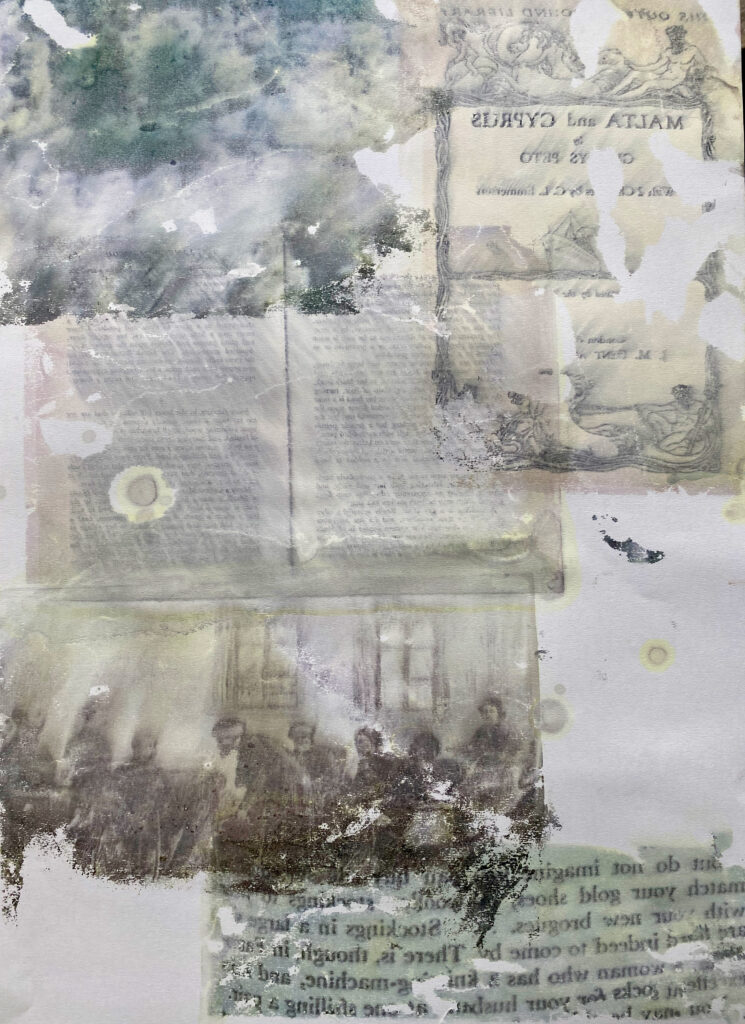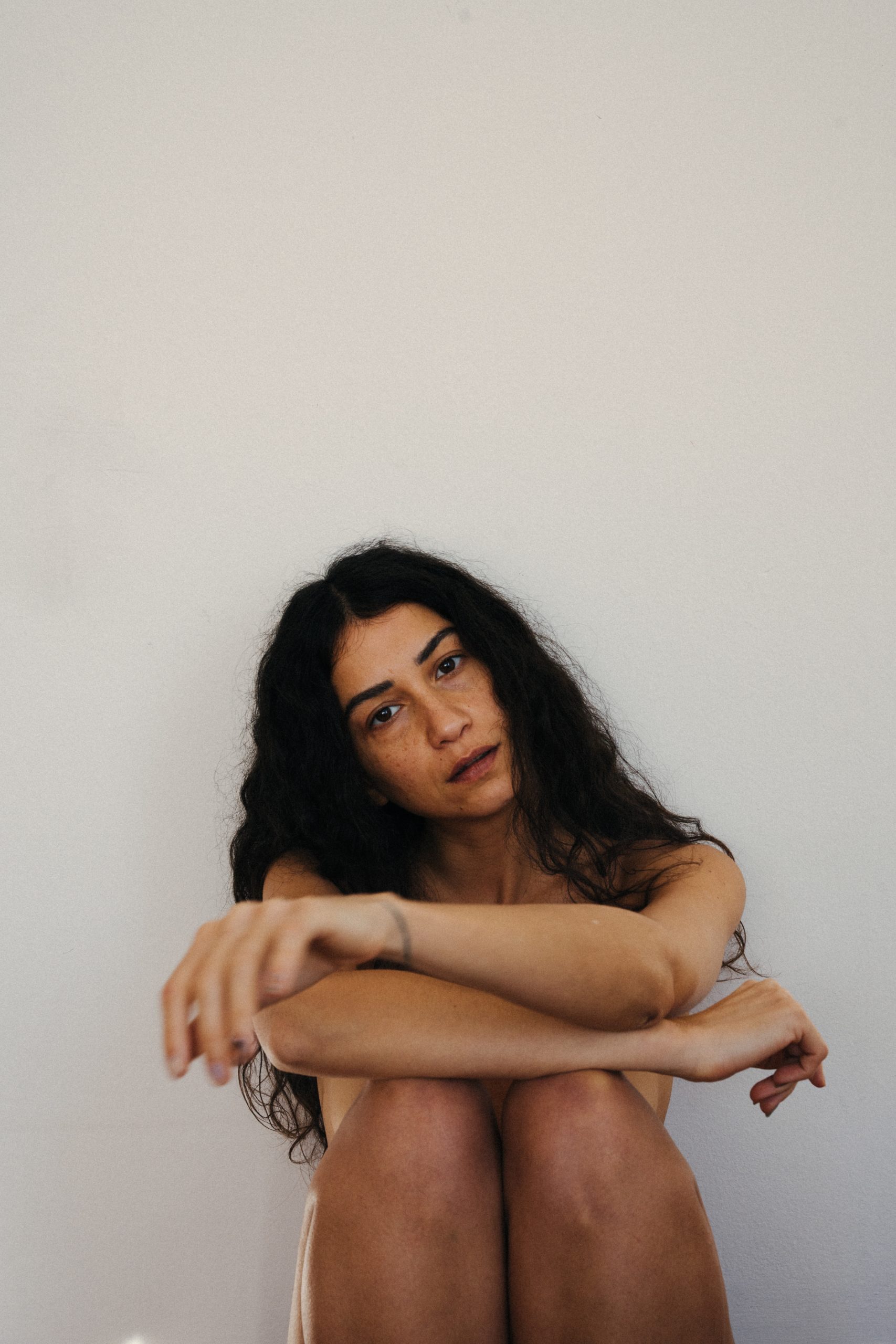Vasileia is preparing her next solo exhibition that will take place at Garage in Nicosia on Tuesday 14th of June. I have reached out to her to discuss about the theme of her exhibition and her perspective on what is feminism today.
It is always an honor sharing women’s voices and their work.

Vasileia Anaxagorou has studied Politics and History at the University of Nottingham and Goldsmiths College, the University of London in the United Kingdom. She was then admitted to the School of Visual Arts in New York City, where she graduated as the top student of her department in BFA Fine Art. She continued her studies at the University of Oxford with the supervision of Katrina Palmer and Oreet Ashery, obtaining an MFA in Fine Art with distinction. Vasileia is currently working towards her doctoral research at the University of Cyprus with Professor Fabienne Baider, focusing on the notion of vulnerability and (un)belonging in diasporic feminist contemporary art practises.
Anaxagorou’s work is interdisciplinary, overlapping in places with moving-image, performance, socially-engaged artworks, photography, painting, drawing, and text-based narratives. Through her work, she continually addresses themes from feminist and queer theory and uses her voice through art-making and research questioning gender representation in societal canons.“
Work from her upcoming exhibition – “Politics of Grief and mourning at the time of the pandemic (and beyond?)

” When I started making my most recent work, I soon decided that I wanted to exhibit it to the public. Ill added words that were overwhelming me (or us) in the media, to a list as new phrases were added in our everyday lives. In semantic havoc, the connection of these phrases carried a common denominator that would best describe the pandemic, revealing one shared process: that of mourning and grief. Often, I think that mourning, in the context of the pandemic, has a dual character. one being personal and social – and private and political.
I am critical of how the harsh deployment of governmentality and biopower appeared as means of protecting life at all costs. There was (or instead still is – I haven’t decided yet- ) a paradoxical determination of politicians to keep the economy open and productive, taking whatever it takes to ensure economic stability that was already diminishing – long before the outbreak. All these indeed came with a cost: a plethora of disenfranchised grieves. When traditional rituals of mourning are abandoned, measured, controlled, or when the idea of tangibility, touching each other is forbidden, a new component of psychological bereavement is introduced. The notion of loss is not simply seen personally, but it is experienced on a (bio)political level. But how can one represent this intangibility of grief in visual imagery? I suppose (or hope?) that my upcoming exhibition will reveal (or intend to do it) the precarity of our being. The limitations of an artistic practice that reflects this process have always been crossing my head.
As artists, we have always been taught to work in precarity, but at this moment, how can an artistic representation amplify the voices of grief in their totality?
Hence, I focus on our corporeality in what it means to go through (un)belonging through a series of poetics dipping into two installation works, performance pieces, and paintings.

What is feminism for you in today’s world?
I am facing difficulties in defining in a single paragraph what feminism is about. Unequivocally, it requires a process to understand why and the intentions of practicing it in today’s context. Maybe it’s because I am constantly in an in-betweenness of choosing what to follow when the world we live in is constantly changing/ evolving or dissolving?
I suppose it is essential to follow one clear direction when one chooses to label oneself as a “feminist.” And that is, no matter where you come from, feminism is not about having a female politician running for office; it’s about who does the talk and who that person represents. If one refers to an archetypal type of woman, then I am not interested.
I guess I am fed up with all the tokenism that has been overwhelming us and how we celebrate womanhood nowadays. Perhaps I define it today like this (and that might be subjected to change tomorrow….who knows) because it happened to me – that without realizing it, or rather, unknowingly, I was part of a situation that promoted women’s rights in some tokenistic fashion. You cannot imagine the immensity of guilt and shame I went through because it was at that point that I realized that even if I know concretely what I believe in, there will be times that I might fall into a trap in a world that operates so much different than me.
I guess, where I am coming from is that, with all the hype about who is and who gets to be a feminist, it is easy not to pick up the intentions straightforwardly, and at that point, it is where feminism becomes undone.
So if I were to define it in the now, I would say that we live in precarious times, and we need to be extra careful, primarily when we refer to feminism and all the -isms. Extra careful that we are all-inclusive. To women of different nationalities, colors, ethnicities. To women of different abilities. Of single-mothers. Of different occupations. To acknowledge that our lived experiences are always different and never assume that there is a commonality.
In some cases, there will be commonalities. But this is not what feminism is about. Instead, it is about being extra cautious where and when tokenism takes place and changing the narrative by acknowledging that many of us out there, with different lived experiences, are willing to bridge the gaps, talk back, and be heard.
Vasileia’s upcoming exhibition will take place in June 2022 at Garage in Nicosia, Cyprus.
Check more of Vasileia’s work at her website


Leave a Reply